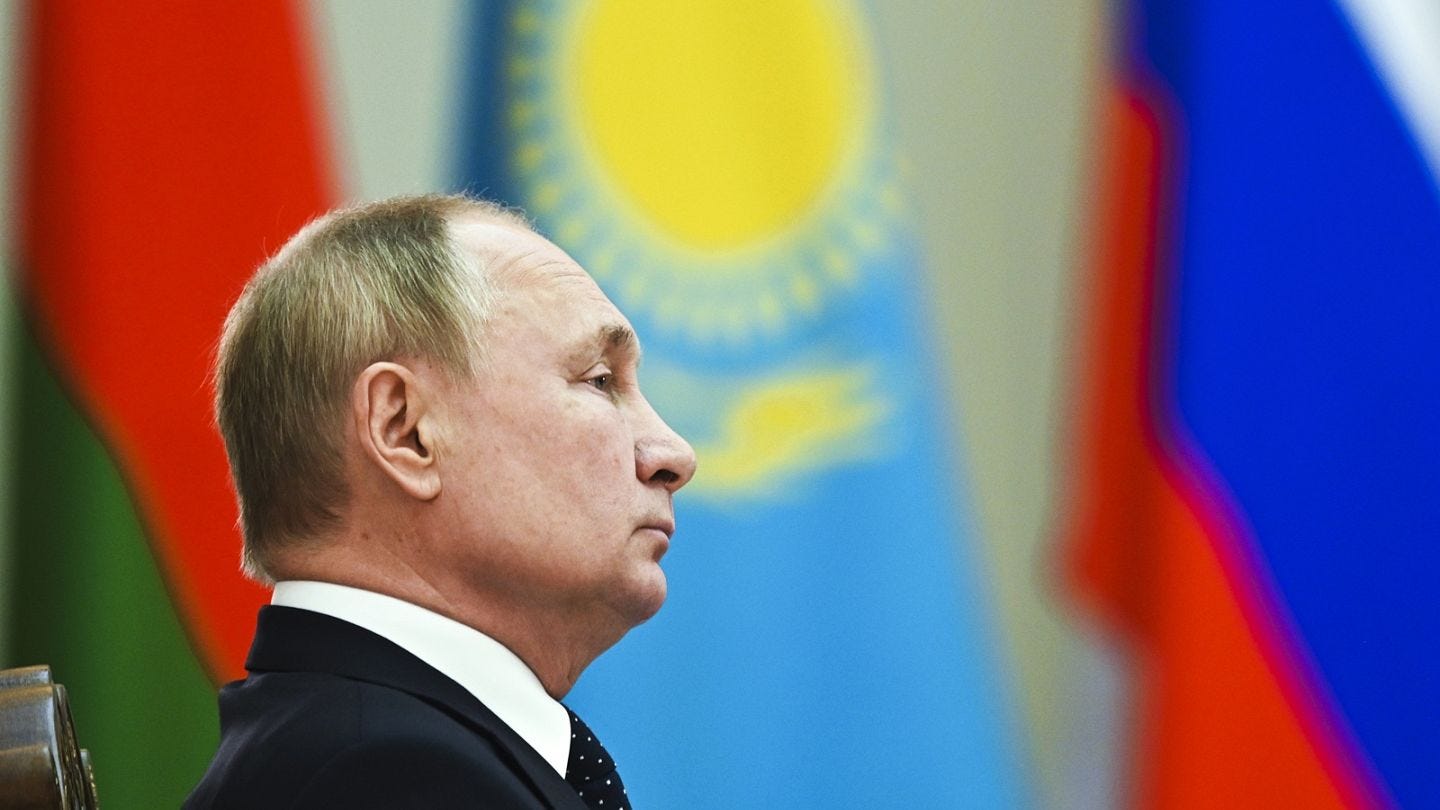Jan 17: Janusz Bugajski, The benefits of Russia’s coming disintegration
As published in Politico on January 12, 2023
Janusz Bugajski, The benefits of Russia’s coming disintegration- Politico
Janusz Bugajski is a senior fellow at the Jamestown Foundation. His new book, Failed State: A Guide to Russia’s Rupture, has just been published.
We are currently witnessing an unfolding revolution in global security that Western policy makers are clearly unprepared for — the impending collapse of the Russian Federation.
Instead of planning contingencies for external spillovers and capitalizing on Russia’s de-imperialization, however, Western officials appear to be stuck in a bygone era, believing they can return to the post-Cold War status quo, with some even offering Moscow security guarantees to keep the country intact.
But Russia is a failed state. It’s been unable to transform itself into a nation-state, a civic state or even a stable imperial state. It is a federation in name only, as the central government pursues a policy of ethnic and linguistic homogenization and denies any powers to the country’s 83 republics and regions. However, hyper-centralization has exposed the country’s multiple weaknesses, including a contracting economy squeezed by international sanctions, military defeats in Ukraine that reveal the incompetence and corruption of its ruling elite, and disquiet in numerous regions over their shrinking budgets.
Moscow is finally being exposed as a rapacious imperial center that’s exhausting its capacities to hold the country together. Yet, most Western leaders still fail to see the benefits of Russia’s disintegration.
The rupture of the Russian Federation will be the third phase of imperial collapse after the unravelling of the Soviet bloc and the disintegration of the Soviet Union in the early 1990s. It’s driven by elite power struggles and intensifying rivalries between the central government and disaffected regions, which in some parts of the country, could lead to civil wars and border disputes. However, it will also embolden the emergence of new states and inter-regional federations, which will control their own resources and no longer send their men to die for Moscow’s empire.
As Moscow turns inward, its capacity for foreign aggression will diminish. And as a rump state, under intense international sanctions and shorn of its resource base in Siberia, it will have severely reduced capabilities to attack neighbors. From the Arctic to the Black Sea, NATO’s eastern front will become more secure; while Ukraine, Georgia and Moldova will regain their occupied territories, and petition for European Union and NATO integration without fear of Russia’s reaction.
Countries in Central Asia will also feel increasingly liberated, and they will be able to turn to the West for energy, security and economic connections. China will be in a weaker position to expand its influence as it can no longer collaborate with Moscow, and new pro-Western states can emerge from within the Russian federation, enhancing stability in several regions of Europe and Eurasia.

Although nuclear weapons will remain a potential threat, Russia’s leaders won’t commit national suicide by launching them against the West. Instead, they will try to salvage their political futures and economic fortunes — as did the Soviet elite. And even if some emerging states acquire such weapons, they won’t have any reason to deploy them while seeking international recognition and economic assistance. Post-Russian states are instead likely to pursue nuclear disarmament — much like Ukraine, Belarus and Kazakhstan after the Soviet demise.
The notion that Western leaders only help President Vladimir Putin by talking about Russia’s collapse is misleading. The Kremlin claims the West wants to destroy Russia regardless of actual policy, and denials from Washington and Brussels simply fuel Kremlin conspiracies.
Rather, a much more effective approach would be to clearly specify what the West supports. Openly backing pluralism, democracy, federalism, civil rights and the autonomy of its republics and regions can help embolden Russia’s citizens by demonstrating they aren’t globally isolated. They will also need access to the information that Moscow suppresses, especially when it comes to providing security, economic development and cultivating peaceful, productive relations with neighbors.
Even after the horrors of Russia’s attack on Ukraine and the justifications the country’s government leaders and advisers have given for genocide, Western officials’ hope that beneficial relations can be established with a post-Putin Kremlin, or that liberals can democratize the empire, is wishful thinking.
The West made a grave mistake when it assumed the collapse of Soviet communism meant the end of Russian imperialism. And as imperial states invariably collapse when they overreach and when centrifugal pressures are fueled by economic distress, regional resentments and national revivals, it must now avoid repeating that mistake — this time by wrongly presuming the current empire is permanent.





Interesting take but we will have to see what develops as there is always the unexpected that changes the scene.